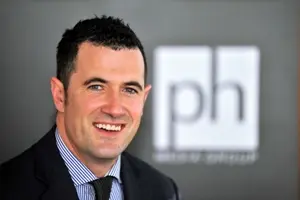The telephone remains a crucial, yet often underappreciated, marketing tool in the travel industry.

Often, when booking a holiday, a phone call represents the customer?s first point of contact, so it is an absolutely vital means of communicating key messages and converting leads into sales.
However, if that first call is handled badly, it could forge a lasting negative perception in the customer's mind.
In fact, a recent survey of 1,000 British consumers by PH Media Group discovered 73 per cent of respondents wouldn?t do business with an organisation if their first call wasn?t handled to expectations.
Considering this, it seems counterintuitive that call handling is often overlooked when it comes to choosing where money is invested in marketing and customer service. Research has found the average business spends 94 per cent of its marketing budget on getting customers to call and only six per cent on handling that call.
A waiting game
The problem stems from the fact audio branding is still a relatively new discipline, meaning visual branding tends to take precedence for most businesses. First impressions last, so it is necessary to convey the desired image and values at first glance.
But the way an organisation sounds is equally important. When a customer picks up the phone to make an enquiry, their ears are their only tool for formulating an initial judgement, so it is important to ensure all the sounds they hear reflect the desired brand values.
Not only does this mean the manner in which customer service advisors speak to them but also what they hear while waiting on hold or being transferred.
If they are subjected to repetitive beeps, poor music or silence over the telephone it can leave them feeling underappreciated. The PH Media Group study found 51 per cent of callers feel more valued if they hear a tailor-made voice and music message while on hold.
In such cases, on-hold marketing ? bespoke, highly-targeted voice and music messages - can be used.
Research of 3,630 UK businesses by PH Media Group has found that the travel industry puts callers on hold for an average of 27.34 seconds, providing an ideal opportunity to convert ?dead air? into brand-congruent marketing messages.
For example, someone may ring to enquire about a city break in Barcelona, only to be informed about an unmissable special offer on a beach holiday in the south of Spain with an additional car hire discount.
The messaging can also direct callers to convenient online resources, such as flight and accommodation search functions, live chat features or even social media, where customers can view exclusive prices or travel tips from industry specialists.
Furthermore, disclosing ABTA and ATOL accreditations in the messages can help to enhance the company?s image as a professional operator, instilling callers with reassurance.
Start from scratch
When implementing a bespoke on-hold marketing system, it pays to choose a reputable audio branding consultant who can assist in constructing the perfect soundtrack from scratch to reflect the company values.
In terms of the business voice, gender, age and accents can all play a part. Travel operators tend to opt for a masculine voice aged 45 to 55 to convey a sense of authority and reassure customers that they have the requisite professionalism to handle the caller?s travel plans. On the other hand, a female voice is largely perceived as soft, soothing and welcoming.
If your travel agency operates in a specific geographical area with mainly local customers, it might be worth employing an accent so callers feel welcomed and better understood.
In terms of music, tracks have the ability to transport the listener to a certain time or place, meaning choosing an existing tune for an on-hold marketing system could be risky if it holds negative connotations. To accentuate the voice attributes, pitch, tempo and volume should all be considered when creating a new track.
Ensure engagement
When callers are put on hold, it is important to consider what they hear and how it affects them. On-hold marketing ensures a customer doesn?t switch off, rather holding their attention without being too intrusive.
For travel operators, the business benefits of shaping your company sound are clear.












